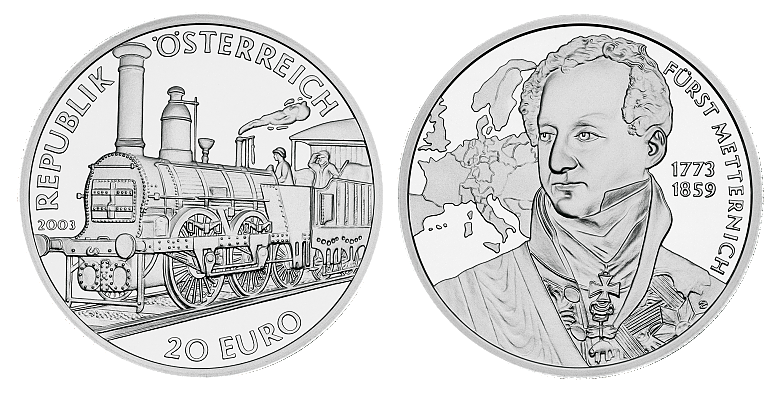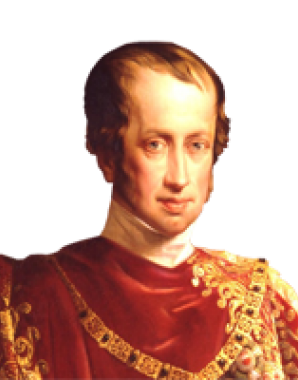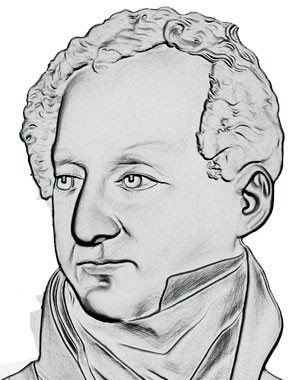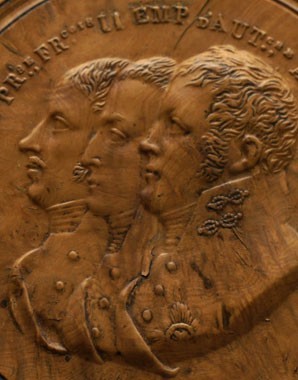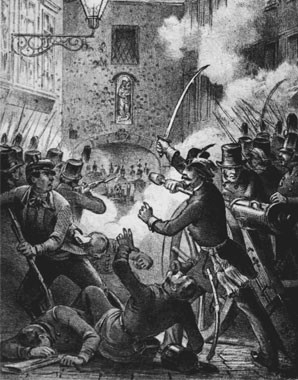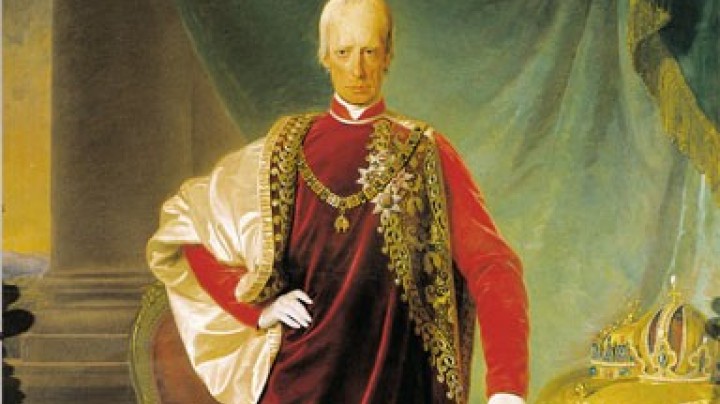Metternich: ‘coachman’ and ‘rock’
For some he was a great statesman but for many his name was synonymous with a repressive police state: Prince Metternich.
In the text that accompanied the special commemorative €20 coin ‘The Biedermeier Era’ issued by the Austrian Mint in 2003, Prince Metternich was described as a ‘great Austrian statesman’. However, the booklet’s positive characterization of a man who had such a formative influence on European politics in the first half of the nineteenth century fails to mention the negative aspects of his chancellorship, during which he was the real power behind the Habsburg Monarchy. Prince Clemens Wenzel Lothar Metternich saw himself as the ‘coachman of Europe’ at the Congress of Vienna, for the results of which he was indeed to a very large extent responsible. He succeeded in building up political networks for himself throughout Europe. Metternich regarded any dangers to the existing absolutist order as the work of the enemy, whether they stemmed from revolutionaries, the liberal governments of western Europe, critical newspapers or philosophers such as the followers of Georg Wilhelm Friedrich Hegel. With his anti-liberal and anti-intellectual stance he was in full accord with the views held by Emperor Franz. By contrast with Franz, however, Metternich was not a respectable family man but a man of the world who provoked numerous minor scandals and whose amours were the talk of the town. The ‘brilliant and amiable Metternich’ idealized in the accounts of certain historians represented the interests of the conservative European monarchs, sought to effect the restoration of the ancien régime that had existed before the French Revolution, and fought any kind of democratic change.
Having been raised to the rank of prince in 1813, in 1821 Metternich was appointed head of the House, Court and State Chancellery (Haus-, Hof- und Staatskanzlei), a kind of foreign ministry. As Chancellor he was the real ruler of the Habsburg Monarchy right through to the revolution of 1848, especially under the weak emperor Ferdinand. Contemporary commentators spoke of a ‘monarchy without a monarch’. In the revolution of 1848, Metternich – the ‘rock of order’, as he continued to call himself – was compelled to leave Austria, at least temporarily, for England, his dominant political role now having been brought to a definitive end.
